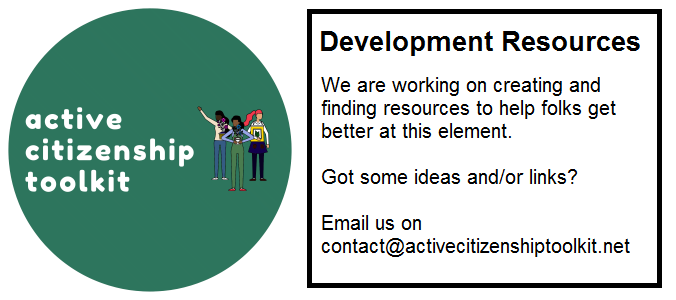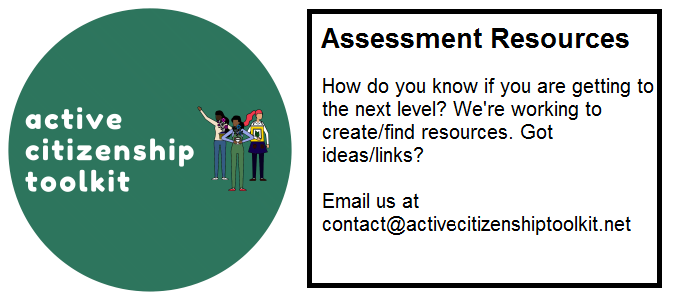Element Descriptor
Being able to give good answers to awkward or hostile questions, without coming across as defensive or a robot, is an under-rated skill. If you don’t have it, train wrecks happen, costing your group valuable credibility (and morale) (e.g. XR and Andrew Neil))
Level descriptors
| Novice | Practitioner | Expert | Ninja |
|---|---|---|---|
| Able to give good sound-bite to a friendly reporter on a local newspaper/local radio. | Able to deal with the standard/expected “lines of attack” that a journalist trying to go for “balance” throws at you, in a newspaper, radio or live television interview. | Able to anticipate, deflect and turn-around the landmines and snares that a down-and-dirty sensationalist/hostile/tabloid hack who wants a “gotcha” headline and has thought about how to get it has laid in your path. Able, at the same time, to come across as the sane and useful one, not as a defensive robot (a la most politicians). | Able to walk away from a Paxo/Newsnight attempted-mauling with a spring in your step and smile at the daggers-looks from your opponents. Your twitter feed fills up with “awesome. How can I help?” messages. |
Element Overview Essay
This is a draft. If something doesn’t make sense, or you see typos, or if you have further ideas, please email us on contact@activecitizenshiptoolkit.net
The reason this has done badly is most people don’t encounter it. And once they’ve been through a hostile interview that hasn’t gone well, they tend to retreat or if it has gone well, they become might become complacent.
The consequences of doing badly in a hostile interview situation can be a massive credibility loss to you individually but more importantly for you organisation and it can then become harder to recruit new people, and easier for people who were thinking about stepping back to step back. Harder to raise money, hard or round. If the person who did the hostile interview didn’t go too far. And obviously, if they have gone too far and being too aggressive, then you might garner some sympathy points. But that’s not really a strategy to rely upon. Because you don’t want people to feel sorry for you. You want them to feel that you did a good job.
The solution as with so many of these, is to practice is to come up with the absolute hardest, nastiest questions that you can imagine and not just prepare them on the written page, but to do it in as real as close to real circumstances as it will be when you do the interview.
So, in a chair, with the lights on, with someone interrupting you, doing the equivalent of poking you in the chest, being sarcastic, snarly, you need to find someone in your group, or be on your group who’s very good at being the kind of media dickhead, who you will probably encounter, to roleplay it, to film it, to go back over it, and to rehearse doing it better. Now, the problem here is that you’re expending an enormous amount of time and energy, which could be spent doing other things. And it might be the case that you declined to appear on shows which you know, are simply gonna monster you and not give you a chance to explain what you are on about that is a serious proposition. They will accuse you of being scared of refusing to debate, but maybe fuck those people.
There is something else about these. Oh, yeah, um, presidents and other candidates do it all the time. That if you look at people who have to perform well, in debates, they practice and they have someone dial up the aggression of the moderator and the other people to 11. So if it’s good enough for presidents, it’s good enough for you
See also Andrew Neil and the XR person late 2019
Development Resources

Assessment Resources

